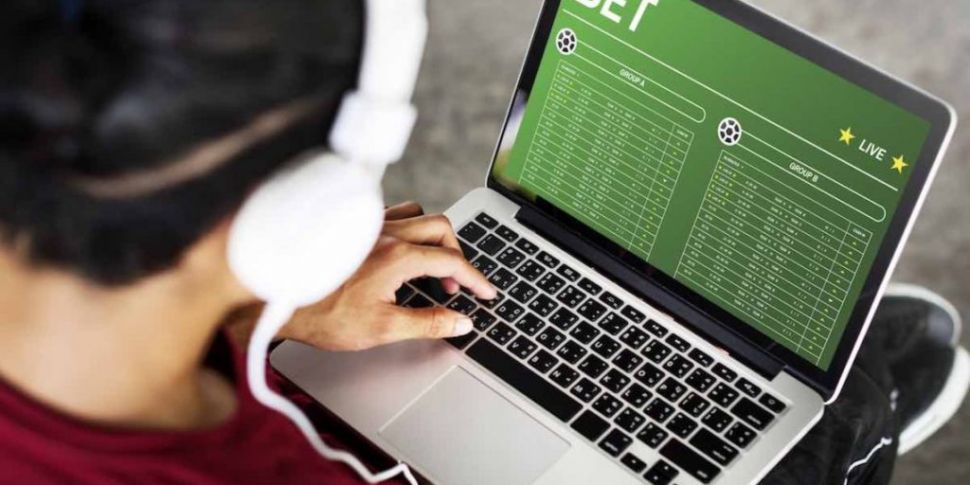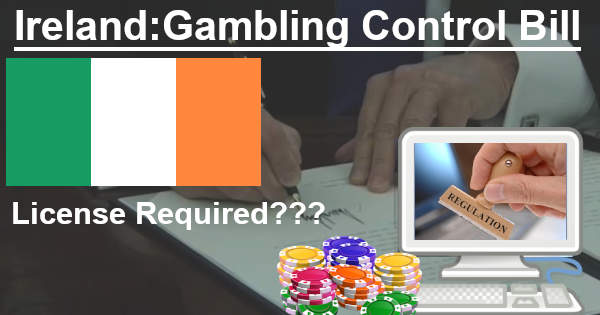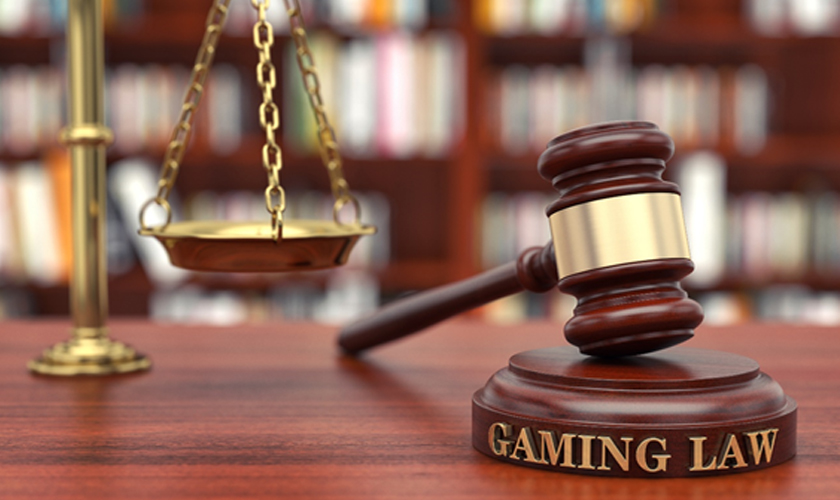Ireland Gambling Control Bill
- Ireland Gambling Control Bill Passed
- Ireland Gambling Control Bills
- Ireland Gambling Control Bill 2019
- Ireland Gambling Control Bill 2020
This had been recommended in the Gambling Control Bill (2018), which itself was derived from the Gambling Control Bill (2013), which in turn had all begun with a review of gambling legislation.
- The draft scheme of the Gambling Control Bill (the Bill) was originally published in July 2013. When that legislation is enacted, it will modernise Ireland's legislative framework for all types of.
- Ireland: Gambling Laws and Regulations 2021. ICLG - Gambling Laws and Regulations - covers common issues in gambling laws and regulations – including relevant authorities and legislation, application for a licence, licence restrictions, digital media, enforcement and liability – in 37 jurisdictions.

The Gambling Control Bill was approved by Government in July 2013. This Bill will, upon enactment, repeal all extant gaming and betting legislation, with the exception of that governing the National Lottery.
The General Scheme of the Bill is with the Office of the Parliamentary Counsel to the Government (OPC) awaiting drafting.
Betting Act 1931
The Betting (Amendment) Act 2015 was commenced on 15th April 2015. This legislation amends the Betting Act 1931 and provides for the licensing of remote (on-line) bookmakers and betting intermediaries for the first time.
Ireland Gambling Control Bill Passed
Applications for certificates of personal fitness from remote operators, and terrestrial bookmakers not ordinarily resident in the State, are to be made to the Minister for Justice, following the placement of an advertisement in two daily, national newspapers. The advertisement and the application form are to be in a specified format. You can access these at the link below:
Terrestrial out of State Operators

Remote Operators
Applications for certificates of personal fitness from terrestrial bookmakers ordinarily resident in the State are to be made to a Superintendent of An Garda Síochána. The newspaper advertisement and application form for such operators can be accessed at the following link
Terrestrial Irish Operators
The application form in all instances details the information that is to be submitted in support of an application. It should be noted that an application will not be considered until such time as all such information has been received.
Ireland Gambling Control Bills

'relevant officer' of a corporate body is defined in section 1 of the 1931 Act as amended by section 2 of the 2015 Act. The first category of person who must apply for a certificate of personal fitness is he or she who exercises control (within the meaning of section 11 or 432 of the Taxes Consolidation Act 1997) in relation to the corporate body. In addition to such persons, corporate bodies may choose that an individual in either the second or third category of person as defined in section 1 applies for a certificate of personal fitness. The legislation does not require all three categories of person to be deemed a 'relevant officer'.
Gaming and Lotteries Act 1956
The Gaming and Lotteries Acts 1956–2003 allow some limited forms of gambling. This is in order to provide a controlled outlet for people who wish to gamble. It also provides a method of fund-raising for charitable, philanthropic and other socially desirable purposes.
The forms of gambling permitted under the 1956 Act are:
- Lotteries (excluding lotteries covered by the National Lottery Act 2013, which is under the auspices of the Department of Public Expenditure and Reform)
- A very limited form of gaming ('gaming' means playing a game (either of skill or chance) for money.)

For more information on gaming and lotteries, see the Review of the Gaming and Lotteries Acts 1956-86 A copy of the 1956 Act is included in the review document.
Ireland Gambling Control Bill 2019
The Gaming and Lotteries (Amendment) Act 2019, will come into effect on 1 December 2020. Information Notes for Gaming and Lotteries are available here: Information Notes for Gaming and Lotteries
Information notes for relevant licences and permits can be found here: Information Notes for Gaming and Lotteries
Previous examinations of Ireland’s gambling laws
Casino Regulation Committee
The Casino Regulation Committee was set up in August 2006 and its report was published in July 2008 under the title Regulating Gaming In Ireland (PDF - 2.11MB)
Review of Gambling
A paper entitled Options for Regulating Gambling published in December, 2010, represented the culmination of a public consultation undertaken by the Department as part of an overall review of gambling in Ireland.
Charitable Lotteries Fund
The scheme has now ceased to operate.
It is well known that significant reforms to Ireland’s outdated gambling laws have long been promised. The draft scheme of the Gambling Control Bill (the Bill) was originally published in July 2013. When that legislation is enacted, it will modernise Ireland's legislative framework for all types of online and land-based gambling. However, since the initial publication of the scheme, limited progress appears to have been made in getting the legislation on to the statute books.
However, there are some stirrings in the Parliament, which indicate that the government may, however belatedly, be moving ahead with the legislation. Just last month, the Minister of State for Justice, Mr. David Stanton, announced in response to a parliamentary question, his intention to bring, forward the Gambling Control Bill and for government approval and publication later in 2017.
Developments in the Gambling Area
Mr Stanton stated that the Bill is a major and complex undertaking and informed the Dáil that in support of this work, he had commissioned a recent study to identify trends and developments in the gambling arena since 2013, with a focus on technological innovation and international legislation.
Ireland Gambling Control Bill 2020
The report, entitled 'Developments in the Gambling Area' identifies new and emerging legislation and policy issues, not addressed in the draft scheme of the Bill published in 2013, and which issues will need to be addressed in the new legislation. The author of the study is Dr. Crystal Fulton, from University College Dublin, and the report apparently forms part of a general review process in respect of the regulation of the gambling sector in Ireland.
Interim Legislation in 2017
Pending the enactment into law of the major reform bill, it is anticipated that in the interim, the General Scheme of the Courts and Civil Law (Miscellaneous Provisions) Bill, will provide some clarification and much needed amendments to the Gaming and Lotteries Act 1956. Mr Stanton has indicated that this proposed interim legislation is at an advanced stage and contains a number of measures that will address issues of concern including the minimum age for gambling activities; realistic stake and prize amounts; and that it will provide clear guidance for the conduct of certain gambling activities, which are not currently regulated.
The Tax Srategy Group Review on Betting Duty
The Department of Finance published details on 19 May 2017 of its proposed review of the Irish Betting tax regime. This review will be examined as part of the Tax Strategy Group review process, which analyses the roll out of the betting regime to remote bookmakers and betting exchanges in 2015. It also looks at the likely impact of an increase in the rates of betting duty on:
- Exchequer revenues – including the potential for recovering duty from unlicensed operators (or putting them out of business); and
- The bookmaking industry including the remote sector.
The Department of Finance is seeking feedback from operators in relation to their views on the following specific aspects of the regime:
- The inclusion of the remote sector in the betting regime under the Betting (Amendment) Act 2015;
- Whether the existing model of turnover tax, with a different approach to betting exchanges, is the most appropriate tax model for the industry at this time;
- What is the appropriate level of betting tax (and the equivalent tax on betting exchange commissions); and
- What would be the likely impact of a move from taxing the bookmaker, to taxing the punter i.e. either a percentage tax on all bets placed, paid by the punter, or a (higher) percentage payable on winnings earned by the punter.
The deadline for responding to the review is 19 June 2017 and the Department of Finance has confirmed that they are happy to meet with operators as required.
Submissions should be forwarded to betting@finance.gov.ie. It should be noted that all submissions made to the Department of Finance may be subject to the Freedom of Information Act 2014.